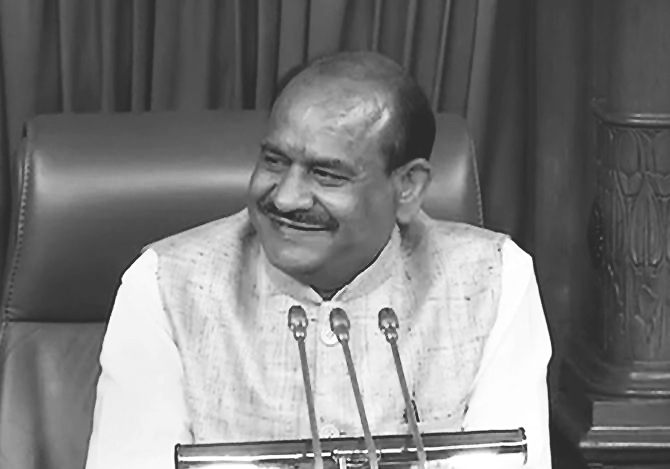Members of an elected Parliament not only represent the people but also form themselves into a microcosm of the nation, the society at large, with all its strengths and weaknesses. A society lacking in discipline cannot be expected, in normal course, to have a parliament functioning in a disciplined manner. Sadly, the Indian Parliament is known more for the iteration of disruptions, day in and day out, than for the good work that members are supposed to do in the two august Houses. Even in a circus, there can be no action without a ring. In this context, what comes as a whiff of fresh air is the principled yet strong stand that the new Speaker, Om Birla, is taking on various matters in the past two weeks of the new Lok Sabha.
When and where things obviously go wrong, the Speaker is putting his foot down. He handled situations in a firm manner every time there was an attempt at disruptions of proceedings. He made it clear that he was elected Speaker unanimously, and that was all the more reason he should care for all sections of the House in an impartial manner. One of his first acts was to make the question hour more engaging by asking both members who raise questions and ministers who answer them to limit their use of words so that more questions got answers in the limited one hour period. The HRD minister got a dressing down when he disrespected House rules. Several acts of ‘indiscipline’ on the part of MPs have been pointed out and curtailed in this short span of time.
A known RSS man, the Speaker is avoiding the use of English for himself – an unhealthy departure from the past when Speakers used a mix of English and Hindi in the conduct of the business. It has to be recognized that India has many languages and the Parliament represents all states and virtually every dialect and language. When the Chair insists on using only one language, it may significantly inconvenience members of other languages. On the positive side, he is giving time to more of the newly elected MPs, sometimes even by extending the time for discussions. A change in the way the House functions is always welcome and this should go down well with the MPs.
When the Speaker found the House proceedings were affected by frequent references in praise of Prime Minister Narendra Damodardas Modi, he interjected to say all such praise could be condensed into a one-line statement, rather than members becoming repetitive. The precious time of the House is meant essentially to take up the people’s issues, and of the nation’s, and cannot degenerate into wholesome praise of individuals. The problem with us Indians lies in our love for praise. Our past being buried under sycophancy to the feudal Lord, we are unable as a race to extricate our mental frame work from that attractive and easy path to success.
Praise, for most, is a way of soliciting favours. Those who receive it generally go overboard. Politics is all about power; and power-wielders tend to get a whole lot of praise mostly because they do not deserve it. This is the way with the world. Discouraging such trends by a discerning leadership could go a long way in streamlining the functioning of not only our political and governance systems but may also help us become a socially rich race.
